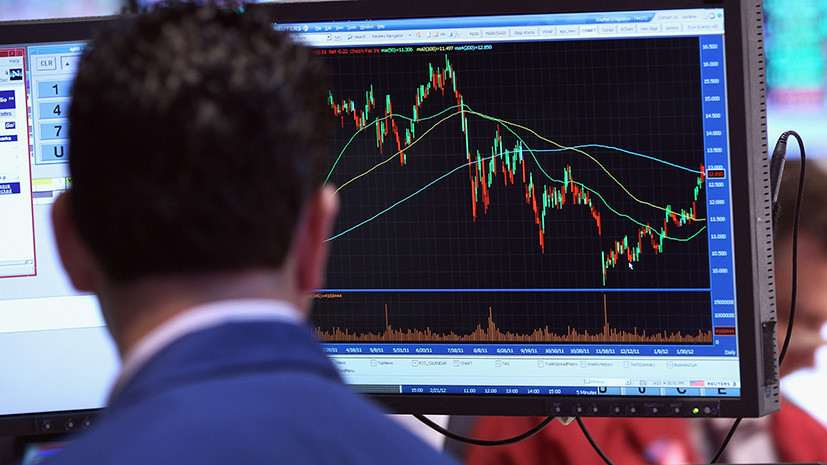On Monday, European key stocks declined steadily. The main reason for the pessimistic market outlook is the indefinite shutdown of the Nord Stream pipeline and a jump in global gas prices.

At the same time, the German stock indicator DAX is the top loser today. At the time of writing, it has fallen by almost 2.5%. Germany is traditionally considered one of the EU countries most dependent on Russian gas.
Meanwhile, the STOXX Europe 600 index of Europe's leading companies dropped by 1.4% to 410.07 points.
The French CAC 40 lost 1.75%, the German DAX dropped by 2.48%, and the British FTSE 100 fell by 0.77%.
Top gainers and losers
The shares of German electricity producer Uniper plummeted by nearly 11%. Consequently, the price of a share was below 5 euros, an all-time low.
The stocks of another German energy company RWE fell by 3.16% on Monday.
The market capitalization of British housing and urban renewal company Countryside Properties soared by over 6%. Earlier, the Wall Street Journal reported that the company was planning to merge with major British real estate developer Vistry to create a $3.2 billion developer. Vistry's shares went down 1.3% on that news.
The stocks of French automobile component, parts makers, and suppliers Faurecia and Valeo fell by 6.1% and 7.5% respectively.
The shares of Swiss financial holding UBS Group AG sank by 1.7%. The day before, the company declined to buy the US Wealthfront for $1.4 billion without giving any reasons for its decision.
The shares of world's steel producer ArcelorMittal SA plummeted by 3.7%. Earlier, the company said it planned to close two plants in Germany and shut down its plant in Spain amid a sharp rise in energy prices.
Market sentiment
Last Friday, Russia's major pipeline Nord Stream did not restart after a three-day scheduled repair. At the same time, Russia has canceled Saturday's deadline for resuming gas flow via Nord Stream. The news came after G7 finance ministers agreed on a plan to limit prices for Russian oil exports.
Gazprom attributed this fact to malfunctions at the gas pumping unit. German company Siemens responded that it did not consider these malfunctions a technical reason for halting the pipeline. Later, Gazprom announced that Siemens was involved in the repair of the gas-pumping unit and was ready to eliminate malfunctions. However, it could not end the repairs due the sanctions imposed earlier.
Recently, the Nord Stream pipeline has been running only 20% of its throughput capacity. Its shutdown for scheduled maintenance has increased already record gas prices and raised fears about Europe's energy supply ahead of winter.
Experts believe that permanently rising energy prices will further increase inflation in the eurozone, which is already rapidly approaching double digits.
This fact stimulates the European Central Bank to take decisive steps. On Thursday, the regulator is likely to raise the interest rate sharply again to avoid further deterioration of economic conditions.
On Monday, European investors were focused on the statistics from the euro area. It became known that in August the S&P Global Composite PMI in the manufacturing sector of 19 EU countries fell to 48.9 points instead of 49.2 points as was expected earlier. Notably, the index was 49.9 points in July .
Meanwhile, the Service PMI dipped to 49.8 points in August from 51.2 points in July. The decline of the index below 50 points was recorded for the first time since March 2021.
According to the Statistical Office of the European Union, retail sales in the euro area rose by 0.3% in July compared to June, when the index dropped by 1%. At the same time, the market was expecting the index increase by 0.4%.
On Monday, the publication of the Euro Area Economic Sentiment index exerted additional pressure on the European exchanges. It decreased to minus 37 points in September from minus 33,8 points in August. Moreover, September's index was the lowest since the crisis year of 2008.
Meanwhile, the German Services PMI declined for the second month in a row. The index fell to 47.7 points, down from 49.7 points in July. The composite PMI dropped to 46.9 points in August from 48.1 points in July.
 English
English 
 Русский
Русский Bahasa Indonesia
Bahasa Indonesia Bahasa Malay
Bahasa Malay ไทย
ไทย Español
Español Deutsch
Deutsch Български
Български Français
Français Tiếng Việt
Tiếng Việt 中文
中文 বাংলা
বাংলা हिन्दी
हिन्दी Čeština
Čeština Українська
Українська Română
Română

